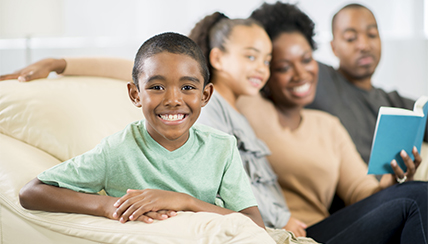Tips and Resources to Help Children Cope with COVID-19 (Coronavirus)
 There’s no denying that we are experiencing increased stress and uncertainty during this time of COVID-19. Children and teens have their own questions and fears and young children may not understand anything that’s happening, but are picking up our stress and reacting to that. Children respond to stress in different ways than adults and it’s important to pay attention to how they are coping.
There’s no denying that we are experiencing increased stress and uncertainty during this time of COVID-19. Children and teens have their own questions and fears and young children may not understand anything that’s happening, but are picking up our stress and reacting to that. Children respond to stress in different ways than adults and it’s important to pay attention to how they are coping.
How You Can Help Your Child
Talk openly about COVID-19 and be developmentally appropriate. This may require separate conversations if your children vary in age. Be reassuring.
Allow your children to ask questions, vent and express emotion. Explain that we are all in this together, that children and adults are experiencing similar feelings, and that we are learning and coping together because it’s new to everyone.
Focus on what you are doing, and what they can do, to stay safe and healthy. Handwashing and social distancing are important, but so are healthy eating, quality sleep and exercise.
Identify the “silver linings” such as more family time, increased electronic device use, walks with the dog, etc. There is always something positive to point out.
For younger children, use a feelings chart or ask them to draw or play can help you better understand what they may be thinking/feeling.
Be aware of your own negative feelings (e.g., anxiety, anger) and address them.
Maintain structure and routine – it may look different than in the past, but we all function better when we have a routine and know what to expect. Allow the children/teens to be part of the planning.
Watch for:
- Changes in eating and sleeping habits
- Lack of motivation and withdrawal
- Mood swings
- Displays of strong fear or anger (including nightmares)
- Increased worry/anxiety
- Looking unhappy, sad or angry
- Fighting with siblings and friends
- Beginning to talk about death
Contact your doctor if you child is not responding and may need professional help.
Utilize crisis hotlines for children and teens.
Stop It Now!
Teen Central
National Suicide Prevention Lifeline: Call 800.273.8255.
Colorado Crisis Services: Call 844.493.8255 or text "TALK" to 38255.
How to talk to Children About Difficult News
American Psychological Association
Talking to Kids About the Coronavirus
Child Mind Institute
How to Avoid Passing Anxiety on the Your Kids
Child Mind Institute
Helping Homebound Children During the COVID Outbreak
Center for the Study of Traumatic Stress
Parent/Caregiver Guide to Helping Families Cope With the Coronavirus Disease 2019 (COVID-19)
National Child Traumatic Stress Network
One-page Tip Sheets for Parents with Kids focused on planning one-on-one time, staying positive, creating a daily routine, avoiding bad behavior, managing stress, and talking about COVID-19.
World Health Organization (WHO)
Family Activities
25 Fun Mindfulness Activities for Children and Teens
KidsHealth: Mindfulness Exercises
Meditation Apps for Kids
ImaginAction: Audio Guides
This information has been reviewed and approved by Carrie A. Horn, MD, CJ Bathgate, PhD, Bruce G. Bender, PhD and Jennifer Moyer Darr, LCSW (May 2020)
| The information on our website is medically reviewed and accurate at the time of publication. Due to the changing nature of the COVID-19 pandemic, information may have since changed. CDC.gov and your state’s health department may offer additional guidance. |


